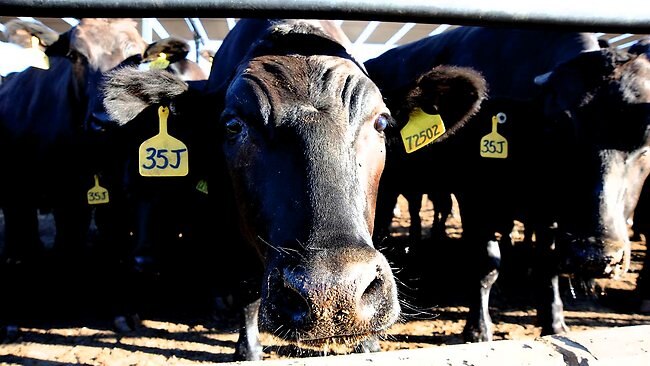Indonesia suspends live cattle imports from four Aussie facilities fearing disease
Officials have disputed Indonesia’s suspension of live cattle imports from Australia after traces of the highly infectious lumpy skin disease were detected in some animals.
The Indonesian Agriculture and Quarantine Agency notified Australian authorities that lumpy skin disease was detected in 13 Australian cattle that were exported to Indonesia.
Since the detection, Indonesia has suspended imports of cattle from four facilities.

Lumpy skin disease is a highly infectious viral disease that is transmitted by biting insects or parasites like flies, mosquitos and ticks.
It’s carried by live animals and can result in animal welfare problems and “significant” production losses – it doesn’t pose a risk to humans.
Australia’s chief veterinary officer Dr Mark Schipp said Australia has never had lumpy skin disease and remains free of the disease.
Schipp said the cattle that were exported to Indonesia that contracted lumpy skin disease had spent some time there before the diagnosis.
“Given the presence of lumpy skin disease in Indonesia, positive results in cattle post arrival in Indonesia are not unexpected,” Schipp said.
“As Australia remains lumpy skin disease free, a detection of lumpy skin disease in another country – such as Indonesia – does not change Australia’s animal health status.”

The Department of Agriculture, Fisheries and Forestry are working to determine the cause.
Schipp also reassured there’s no concern for Australian cattle producers about the disease.
Cattle Australia CEO Luke Bowen said there is ongoing extensive testing to ensure Australia remains lumpy skin disease.
“Further surveillance and testing continue across the northern cattle industry conducted by private and government vets with all testing over the past 12 months showing negative results,” Bowen said.
“The industry and the states and territories are working closely with the Australian Government to provide the assurances sought by Indonesia’s authorities.”








